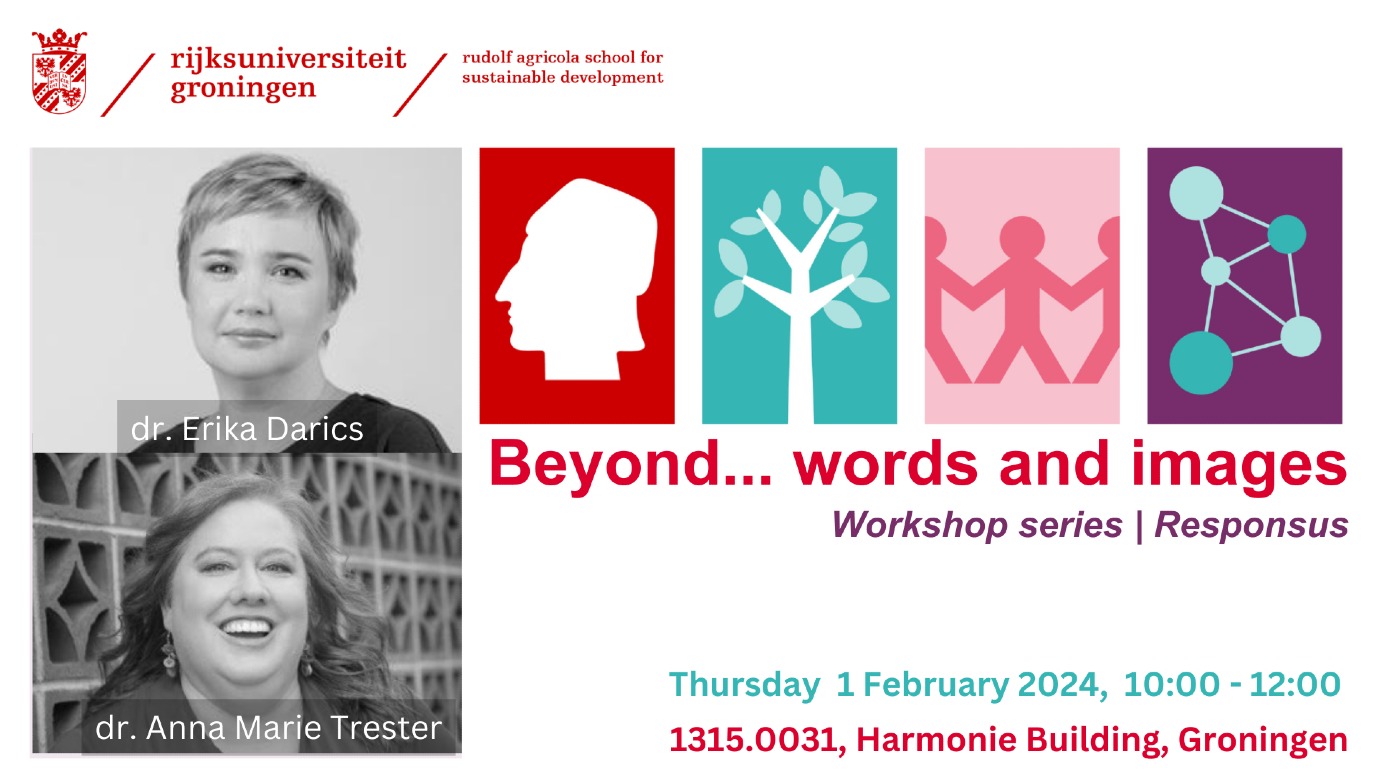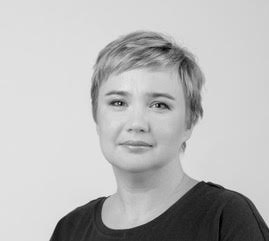Beyond… Storytelling: Why, When, and How to Work with Stories | Workshop 1 in the workshop series 'Beyond... words and images'|Responsus
| When: | Th 01-02-2024 10:00 - 12:00 |
| Where: | 1315.0031, Harmonie Building, Groningen |

Beyond... words and images
These workshops will focus on - as you probably guessed - words and images. Why? Because they are just like windowpanes: people do not normally stop and examine them, yet they shape our view of the world.
Language and visual communication - like the glass - frames, distorts or colours what we perceive to be true, real or important. And such perceptions are particularly important for the complex challenges of our sustainable future.
In our workshops, we encourage you to (re)examine words and images, and inspire you to find new angles, new data and new questions in your own research.
Beyond… Storytelling: Why, When, and How to Work with Stories
There is nothing more deeply human than storytelling and story listening. That’s why stories are such a powerful tool for anyone seeking to understand and interpret what moves and motivates people in communities.
Story as a research tool circumvents the behaviour compliance often seen with research instruments like surveys, where respondents tend to focus on giving answers that they believe questioners want. Not only does it yield deeper insight into how people really think and feel, a research practice informed by story listening engenders buy-in and engagement by design through the processes of story finding and story triggering, creating genuine emotional commitment to the problem and follow-through to action.
But even when stories are used as 'data', for example collected as part of an interview, the interview as a site for the construction of knowledge is often “black-boxed”. Interviewees are often considered to be a repository of facts, reflections, opinions, and other traces of experience and it is assumed to be sufficient for the researcher to ask an honest question to get an honest answer.
However, a story is never a 'neutral' reflection of a speaker's thoughts, beliefs and opinions, nor is an accurate reflection of an objective world that is 'out there somewhere'. Stories are interactional accomplishments, co-constructed with the interviewer and contingent on the immediate interactional context.
In this session we will
-
Introduce story as research method an introduce principles or narrative inquiry.
-
Practice techniques of story eliciting.
-
Analyse stories as interactional accomplishments, drawing on positioning theory.
The session is intended for anyone who is - or is planning to - use interviews and/or narratives in their research, and will give a gentle introduction to theory, and hands-on experiences for story collection and analysis.

The session is led by:
dr. Anna Marie Trester (senior research associate at the FrameWorks Institute, US; sociolinguist/consultant at Career Linguist) whose research and extensive consulting work centres on story, with particular focus on story listening

dr. Erika Darics (academic lead of Responsus) who advocates for greater awareness of language in complex problem-solving.
Symposium
The workshop is organised in conjunction with the Discourse and Communication (DisCo) group’s symposium on Narratives and Storytelling, which will take place between 13-17 in the same location!
The symposium will be a perfect opportunity to expand your newly acquired knowledge about stories and hear about the latest research and discuss possible collaborations over drinks.

